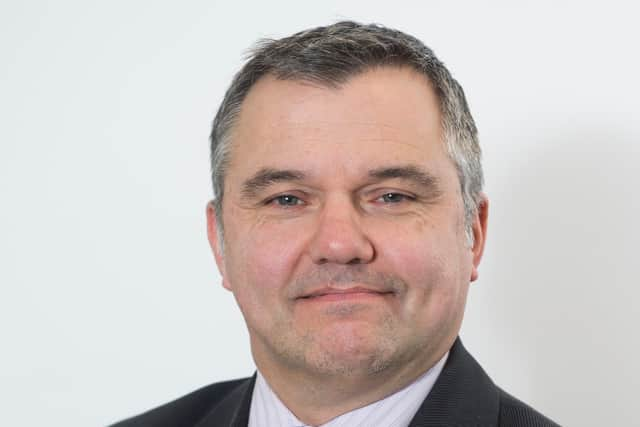Personalised care is now more vital than ever – Gordon McLean


In 1990, Scotland was a very different place. Maggie Thatcher was still in power, Deacon Blue was dominating the charts and Glasgow was celebrating being named the European City of Culture.
It was also the year the first ever World’s Biggest Coffee Morning was held, in aid of Macmillan Cancer Support.
Advertisement
Hide AdAdvertisement
Hide AdThe event celebrated its 30th birthlast week and, it’s fair to say, it wasn’t the party that was planned.


Registrations for this year’s Coffee Morning were down 75 per cent, leaving us worried about how we’ll fund our cancer support services. Cancer treatments have been delayed and testing paused.
What should have been a time of celebration and a chance to look back at how cancer treatment and support has improved over the past three decades, is now a time of uncertainty and worry as the cancer care system struggles to cope with the coronavirus crisis.
The past six months have been difficult for all of us, not least for staff in the NHS and social case system who have been working hard to support people with cancer during this unprecedented time.
In March the Scottish Government paused cancer screening.
In April, Scotland’s Chief Medical Officer announced there had been a 72 per cent drop in urgent cancer referrals from GPs. Both announcements raised fears many cancers would be diagnosed late.
In June, a report showed the cancer waiting times target in Scotland had been missed yet again.
In August, new figures showed a significant increase in the numbers of people waiting more than the six-week target for diagnostic tests.
Amid all of this were the stories of people with cancer who were not only worried about contracting the coronavirus, but who’d had their treatment cancelled or delayed, leaving them worried their illness could progress to the point it was no longer curable.
Advertisement
Hide AdAdvertisement
Hide AdIt’s unsurprising then that a Macmillan survey found people with cancer were struggling to cope, facing anxiety and even panic attacks.
The Scottish Government has promised to deliver a cancer recovery plan in the autumn.
We welcome this and look forward to seeing the detail on how it will get testing and treatment back on track, while protecting the principle of personalised care.
Cancer doesn’t just affect people physically. it affects every aspect of life, causing problems from debt to depression. Support is often available, but too often people don’t know how to find it.
When the Macmillan Glasgow Improving the Cancer Journey service was launched six years ago, it made Glasgow the first part of the UK where every single person with cancer in the city was proactively offered support with everything from money worries to mental illness.
The service has measurably improved the lives of people with cancer in the city while freeing up the time of doctors and nurses to focus on the complex clinical needs of their patients. In 2019, the First Minister announced the Scottish Government and Macmillan were entering into an £18m partnership to set up ICJ services in every part of Scotland.
Covid has led to some delays in progressing this ambition, however the current crisis only makes personalised care more vital.
A system that treats everyone as an individual with their own fears, problems and priorities and systematically addresses them, isn’t a “nice to have”, it’s an essential part of the cancer care pathway.
Advertisement
Hide AdAdvertisement
Hide AdThe Scottish Government recently reiterated its support for personalised care and we look forward to seeing this included as a central pillar in the cancer recovery plan. With the rate of infection increasing and the threat of a new lockdown looming, we urge the government to ensure the early moves to get the system back on track won’t be derailed.
Gordon McLean, strategic partnership manager, at Macmillan Cancer Support.
Comments
Want to join the conversation? Please or to comment on this article.